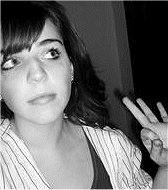We, therefore, the Representatives of the united States of America, in General
Congress, Assembled, appealing to the Supreme Judge of the world for the
rectitude of our intentions, do, in the Name, and by Authority of the good
People of these Colonies, solemnly publish and declare, That these united
Colonies are, and of Right ought to be Free and Independent States, that they
are Absolved from all Allegiance to the British Crown, and that all political
connection between them and the State of Great Britain, is and ought to be
totally dissolved; and that as Free and Independent States, they have full Power
to levy War, conclude Peace contract Alliances, establish Commerce, and to do
all other Acts and Things which Independent States may of right do. — And for
the support of this Declaration, with a firm reliance on the protection of
Divine Providence, we mutually pledge to each other our Lives, our Fortunes and
our sacred Honor.
The Declaration of Independence was signed on July 4th, 1776. Most people, even those studying it in grammar school, know this. However, do many people know what the Declaration actually contains? Most would respond that it contains our freedom and was the first document to do so. However, that's what it is - a declaration by the signers. But who are they declaring their independence to? We know they're declaring their independence from Britain, but who is saying that this document is valid? Who says we ever really separated from the British government? Because we are now our own free country, we assume we simply had a stand-off and declared ourselves independent. But can a new country do that? Can they say they are no longer citizens of the country they hail from? The British government, of course, would not allow the colonists to do this, had they any say over the matter. So what was allowing the newborn America to claim outright independence without granted legal permission from their mother country?
Because the colonies were newly founded, their government was still in the works, meaning the Declaration of Independence was the first step towards establishment. It listed the faults of the country which they derived from, and the wrongdoings Britain had done to its citizens. We as a country assumed that once this document was signed, it was valid – but who ever said that it was? Was it authorized by anybody, excluding the colonists themselves? Britain, obviously, did not approve of America’s newfound autonomy, as they still tried to make the United States dependent on their goods (see The Boston Tea Party). Nowadays, it does not matter whether we made this document legal or not. We are the political top dog, and we employ a good percentage of the impoverished countries. Moral issues aside, we are the world’s supergiants, and we are definitely a country by the rulebook. But whose rulebook are we going by? Do countries need to get permission from their mother country, or is that just inflating the power of the country which they came from?
This is a typical quality of Americans. It obviously started early on, where we presume we have so much power we can do everything ourselves. The United States assumes it can rule everything from where it stands. We gain power over other countries by employing their populace, and working from the inside to make smaller countries inferior.
Although it seems like life, liberty and the pursuit of happiness are a good ideas to try and attain, is that what our “fresh, innovative” new government was doing by assuming it has all the power? The writers of the declaration may have thought they were doing what was best for its citizens by seeming omnipotent when writing the document. “We hold these truths to be self-evident, that all men are created equal, that they are endowed by their Creator with certain unalienable rights…” Why do Thomas Jefferson et al. have the rights to instigate unalienable rights? As Americans, most of us have been instilled with self-empowerment that appears to be confidence here, but arrogant to other countries.We hold these truths to be self-evident, that all men are created equal, that
they are endowed by their Creator with certain unalienable Rights, that among
these are Life, Liberty and the pursuit of Happiness. — That to secure these
rights, Governments are instituted among Men, deriving their just powers from
the consent of the governed, — That whenever any Form of Government becomes
destructive of these ends, it is the Right of the People to alter or to abolish
it, and to institute new Government, laying its foundation on such principles
and organizing its powers in such form, as to them shall seem most likely to
effect their Safety and Happiness.
“The revolutionary generation” (as put by Joseph J. Ellis) was one of overconfidence. Although without it we may not have all of the civil liberties which we have today, with it we have quickly accelerated ourselves downhill with overconfidence in our republic and arrogance when associating with other countries. The perplexing issue of our original independence is a completely American subject. We do not know who made the document legal, but we assume it is so.

No comments:
Post a Comment